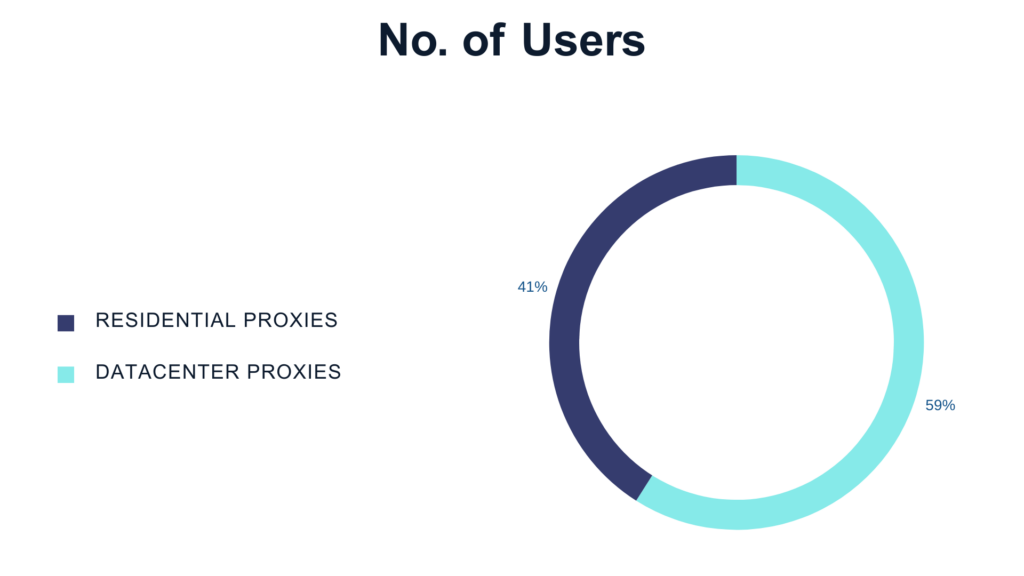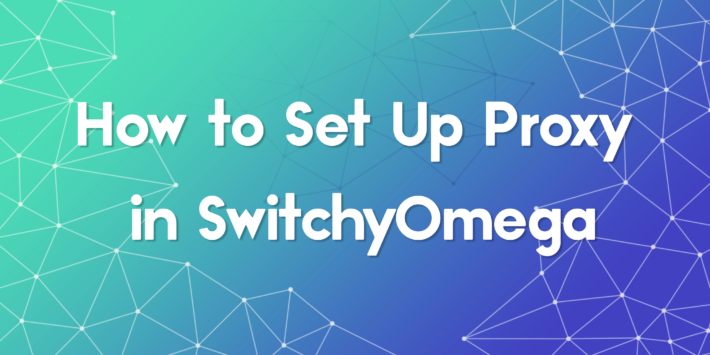Datacenter vs Residential Proxies: Which Proxy Is for You?

Datacenter vs Residential Proxies is an critical for developers, marketers, and SEO professionals selecting a proxy service. Whether you are scraping websites, managing multiple accounts, or accessing geo-restricted content, the type of proxy you choose can make or break your workflow. This guide will walk you through the difference between these two types of proxies, explore key use cases, and help you decide which proxy fits your needs best.
Understanding Datacenter and Residential Proxies
1️⃣ What Are Datacenter Proxies?
Datacenter proxies are IP addresses that originate from data centers rather than being linked to residential Internet Service Providers (ISPs). These proxies are hosted on high-performance servers, making them a fast and cost-effective option.
Advantages of Datacenter Proxies
- High Speed: Datacenter proxies are known for their quick response times since they are hosted on powerful servers.
- Cost-Effective: They are generally more affordable compared to residential proxies.
- Stable IPs: Ideal for tasks that require a consistent IP address.
Limitations of Datacenter Proxies
- Easier to Detect: Many websites can identify and block datacenter proxies.
- Potential Shared Use: Some datacenter proxies come from shared IP pools, which can reduce reliability for specific tasks.
2️⃣ What Are Residential Proxies?
Residential proxies use real IP addresses assigned to home internet users by ISPs. These proxies make online activities appear as if they are being performed by a genuine user, which significantly reduces the risk of detection and blocking.
Advantages of Residential Proxies
- High Success Rates: Websites are less likely to detect and block them since they come from real user devices.
- Bypass Geo-Restrictions: These proxies allow access to region-specific content by routing traffic through real users worldwide.
- More Effective for Complex Websites: Many advanced websites use sophisticated detection methods that residential proxies can easily bypass.
Limitations of Residential Proxies
- Higher Cost: Since these proxies involve real user devices, they are more expensive than datacenter proxies.
- Slower Speeds: Residential proxies may be slightly slower since they rely on real user networks.
A Short History of Proxy Evolution
The concept of proxies began in the early days of networking when they were used for caching and gateway routing. As internet activity evolved, so did proxy technologies. Datacenter proxies became popular for their speed and affordability, while residential proxies gained traction for their authenticity and ability to avoid blocks.
Real Use Cases for Both Proxy Types
- SEO Monitoring: Datacenter proxies are used to collect SERP data at scale. Residential proxies are used for localized keyword tracking.
- Social Media Management: Managing multiple accounts across platforms is safer with residential proxies because they mimic real users.
- Market Research: Web scraping e-commerce or competitor data works best with datacenter proxies due to their speed.
- Ad Verification: Residential proxies allow marketers to verify ads across different regions without being detected.
- Accessing Restricted Content: Residential proxies help bypass IP-based restrictions imposed by streaming or shopping platforms.
Performance Breakdown: Datacenter vs Residential Proxies

Let’s explore how datacenter and residential proxies perform in critical categories like speed, anonymity, and cost:
| Criteria | Datacenter Proxy | Residential Proxy |
|---|---|---|
| Speed | Extremely fast due to dedicated servers | Slower since they use real consumer devices |
| Authenticity | Can be flagged easily | Harder to detect, appear as real users |
| Cost | More affordable | Higher due to ISP leasing and reliability |
| Best Use | Scraping, automation, data crawling | Geo-targeting, account creation, ad testing |
📝 Understanding Unlimited Bandwidth in Proxy Services
Many proxy providers now offer unlimited bandwidth, which is a huge advantage for large-scale scraping or high-frequency use cases. This is particularly useful for datacenter proxies, which are often bundled in packages that support auto rotation to avoid IP bans. Residential proxies with unlimited bandwidth are rarer and more premium, but some providers like ProxyTee do offer this as a core feature.
📝 Auto Rotation and Proxy Pools
Auto rotation is another important feature, especially when scraping large volumes. This technique changes the proxy IP after each request, minimizing the chance of being blocked. Most proxy providers now offer this feature by default. Datacenter proxies use IP rotation on the server level while residential proxies rotate using large ISP-backed IP pools. When combined with unlimited residential proxy services, this becomes a robust and scalable setup.
Datacenter vs Residential Proxies in Real Workflows
Let’s look at how these proxies function in real-world workflows. A marketing agency managing social campaigns uses residential proxies to avoid bans on multiple accounts. Meanwhile, a developer building a search engine scraper opts for datacenter proxies due to the volume of requests and lower cost. In both cases, the proxy choice supports the specific demands of speed, authenticity, and scale. For businesses that need both, hybrid proxy models are also becoming popular, combining datacenter speed with residential authenticity.
💡Is Using Residential Proxies Legit?
Using Residential Proxies is legit if the providers ensure legitimate business practices. Here are the points to show our commitment to customers:
- Full peer consent: Every peer must grant full consent to enter the ProxyTee network.
- Opt-in/out at any time: All members can choose at any moment whether to enter or leave the network.
- Zero collection of end-user data: No collection of data from the device user is collected.
Choosing the Right Proxy Providers
Not all proxy providers are created equal. Some specialize in datacenter proxy solutions with fast access and scalability. Others focus on residential proxy networks that can reach geo-specific content. When choosing a provider, check for features like unlimited bandwidth, proxy rotation, API access, and uptime guarantees.
ProxyTee is a residential proxy provider focused on delivering reliable residential proxy services with unlimited bandwidth. What sets ProxyTee apart is its commitment to transparency, ease of integration, and performance tuning for marketers and developers. ProxyTee supports auto rotation, making it ideal for tasks like scraping, ad verification, and traffic routing. By combining an intuitive dashboard with scalable pricing, ProxyTee becomes a smart choice for anyone comparing datacenter vs residential proxies in their workflow.
The Smart Way to Pick Between Datacenter vs Residential Proxies
In the datacenter vs residential proxies debate, the winner depends entirely on your needs. For speed, cost, and volume, datacenter proxies are the go-to. For stealth, authenticity, and region-specific access, residential proxies shine. Proxy providers that offer features like unlimited bandwidth and auto rotation further enhance the value of your chosen solution. By understanding the strengths of each proxy type and matching them to your use case, you can build a robust, scalable, and efficient digital workflow.


